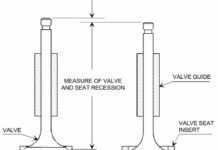
Not to get all metaphysical, but the heart is at the very center of who we are and what we do. It feeds the brain with nutrients and life-giving oxygen, and fuels the cells out to the extremities. Any abnormalities of the heart, especially at the controls of an airplane, can lead to stress if not calamity.
Accordingly, being honest with yourself and your physician regarding your heart health is the responsible thing to do. It’s item 18g on the Basic Med checklist.
According to the editors of our sister website University Health News, there are four basic heart conditions or concerns that require attention in order to preclude or forestall a heart problem. Obviously there can be heart problems that are more complicated, but these are the big four and addressing problems associated with these items will go a long way toward maintaining a healthy ticker.

Family history of heart disease: If you are predisposed to heart problems you’ll likely know it from an early age if any first-degree relative (father, mother, brother, sister) suffered a heart condition. But it doesn’t mean you’ll have a lifetime of heart ailments. Some of your family heart history may have been as a result of easily modifiable lifestyle issues: smoking, hypertension or high cholesterol chief among them. A family history of heart problems is not your destiny—so an honest consultation with your doctor can ease your mind and put you on the right path.
Hypertension: Managing high blood pressure is perhaps the easiest way to get out ahead of potential heart problems. The first telltale sign of high blood pressure might be a persistent headache, a random nosebleed or feeling dizzy, particularly when you get out of a chair. You and your doctor will want to explore the various medication solutions at your disposal—from ARBs to beta blockers—but even a change in diet can have a positive impact on high blood pressure, especially at the lower end of the threshold, which is 135/80 (the new guideline).
Cholesterol: After a lifetime in pursuit of gustatory delights, we can’t blame you if your cholesterol is a bit on the high side. But it’s good to understand what your cholesterol number means on your lipid panel when you have blood work. Good cholesterol is HDL. You want a high number of this type, which attaches itself to LDL, the bad kind, and flushes it back to your liver for waste removal. LDL cholesterol is what clogs the arteries and leads to atherosclerosis. A heart attack happens when atherosclerosis ruptures, causing an emboli that can trigger a heart attack. Triglycerides are fats that store unused energy for later use by the cells. Excess triglycerides can also compromise heart health. To find out more about proper cholesterol levels, click this link.

Arrhythmias: You might have experienced a rapid, irregular heart beat that settled back to normal after a few minutes. It’s called atrial fibrillation, and it’s a common disorder of your heart’s electrical system, especially prevalent among older people. It starts in the left upper chamber of your heart muscle called the atria, the area responsible for creating the electrical pulse that causes your heart to beat. (There is also a condition called ventricular fibrillation, but it is less common.) The real problem arises when atrial fibrillation (often shortened to just “Afib”) causes blood to pool inside the heart muscle, particularly around the valves separating your heart’s four chambers, and this pooling can cause a blood clot that could potentially break loose and cause a stroke. Blood thinners are the commonly prescribed drugs to deal with the potential of blood clots, and warfarin (Coumadin) has been the standard for decades. A new generation of medication is now available (Eliquis, Predaxa) that offer the same blood thinning properties but also reducing the frequency of blood tests to check medication levels.
Bottom line: For a pilot to maintain flying privileges under Basic Med attention will need to be paid to the checklist found on Section Two. Rest assured you’ll be able to conquer item 18g (Heart or vascular trouble) with a serious look at the preceding four items. As always, your doctor is your first line of defense in dealing with health complications that could impact your ability to fly.


































